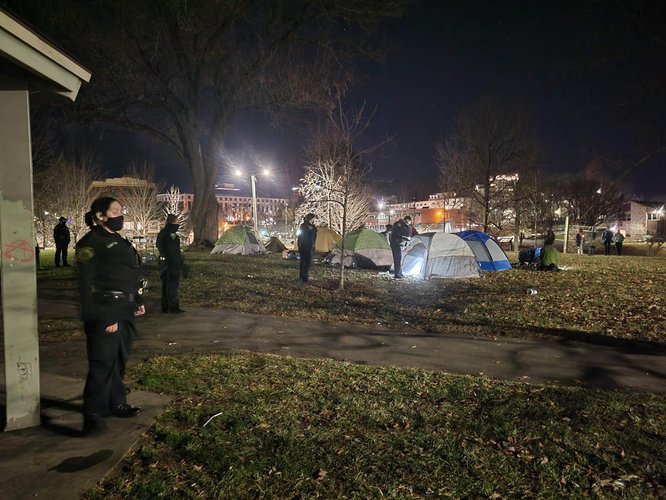
Sometimes, journalists’ stories take them across borders. But when journalists are targeted for interrogation about their work or are pressured into to handing over their devices, they must go to extra lengths to protect their sources and reporting. A new report by the Committee to Protect Journalists (CPJ) sheds light on officials’ unacceptable targeting of reporters at the border.
CPJ identified 37 journalists who found secondary screenings by Customs and Border Patrol (CBP) to be invasive. Out of that group, 30 said they were questioned about their reporting, and 20 of them said their electronic devices were searched by border officers without a warrant. Between 2006 and June 2018, the 37 journalists were collectively stopped for screenings more than 110 times.
In several instances, United States border agents have demanded passwords to unlock journalists’ devices, which often contain sensitive information about stories and sources, as condition for entry into the United States. Some journalists, like photojournalist David Devgen, have opted to surrender their passwords rather than have their devices confiscated. Journalist Ali Lafti unlocked his phone for CBP, believing he did not have a choice, and cultural reporter Anne Elizabeth Moore complied when asked to leave her phone on and unlocked on the dashboard of her car by border agents.
Others, like Canadian journalist Ed Ou, refuse to provide the passwords to their devices, and are denied entry into the country altogether. That journalists are forced to choose between their privacy and protecting the integrity of their reporting and their ability to report out a story is outrageous, and not a real choice at all.
In many of the cases included in CPJ’s report, journalists did not feel that they fully understood their rights, and whether they could refuse to surrender their devices or passwords. Ed Ou said that he was not prepared for what happened in the United States, which he had thought protected press freedom and freedom of expression.
CBP has broad authority to conduct searches at the border, including without a warrant.
“Courts have so far upheld the so-called “border exception” to the Fourth Amendment’s requirement that authorities obtain a warrant to search people and their belongings,” CPJ’s report reads. “But legal challenges are being mounted over whether physical objects—such as laptops and phones—and the digital information contained on these devices should be treated the same way.”
Senators have proposed two bills that would move to reign in CBP’s sweeping powers relating to device searches of U.S. citizens and permanent residents. The Protecting Data at the Border Act would require CBP to obtain a warrant for searches of Americans’ devices, and the Leahy-Daines Bill would prohibit border officers from conducting searches without first meeting a standard of reasonable suspicion.
Legislation that would protect the rights of American journalists at the border is critical, and these bills should be adopted (preferably the stronger Protecting Data at the Border Act). But oftentimes, it’s non-American journalists that are the most vulnerable at the border, who may have less legal support, and are perhaps less likely to know their rights in the United States. No journalist, American or not, should face threats to their reporting at the border, and the civil liberties and privacy of journalists who are not citizens or permanent residents are no less important.
The 37 cases explored by CPJ is a small set of the millions of people and likely thousands of journalists who leave and enter the United States every year. So while it’s impossible to make any sort of conclusion about trends, in general, border stops have increased under the Trump administration.
U.S. Customs and Border Patrol reported in April last year that searches increased from 8,500 in fiscal year 2015 to about 19,000 in fiscal year 2016, with another 15,000 conducted in just the first half of 2017. CPJ’s report has shed light on CBP’s dangerous treatment of journalists going about doing their jobs in the context of CBP’s increasingly disturbing privacy violations.
Secondary screenings that target journalists traveling for work are deeply concerning and threaten to undermine press freedom. As federal agencies ramp up warrantless searches of devices at the border, the protection of journalists’ digital lives and the work of civil liberties groups has never been more important.



